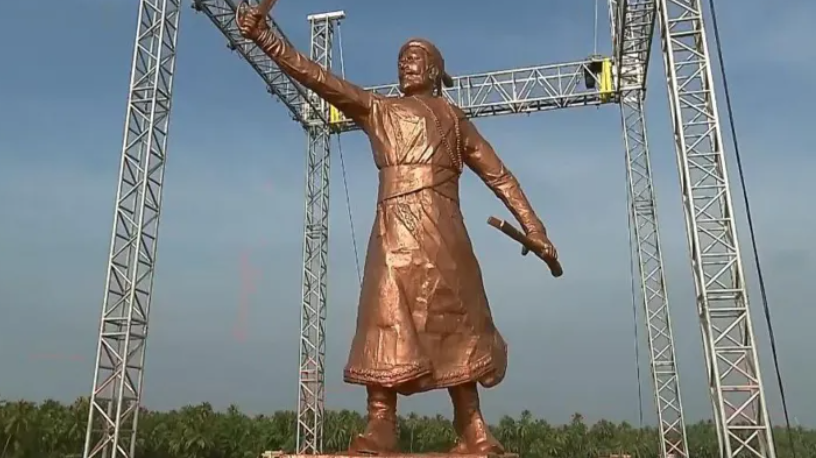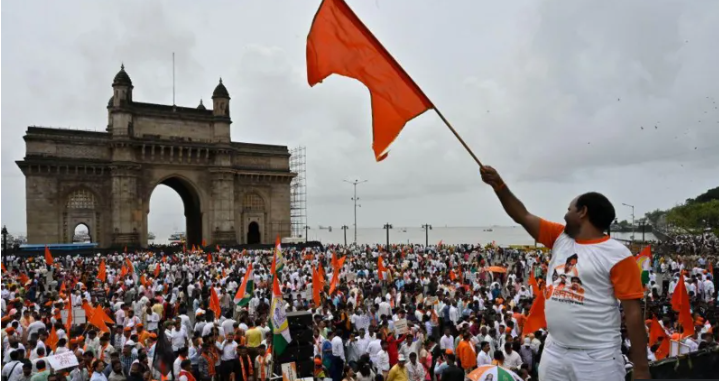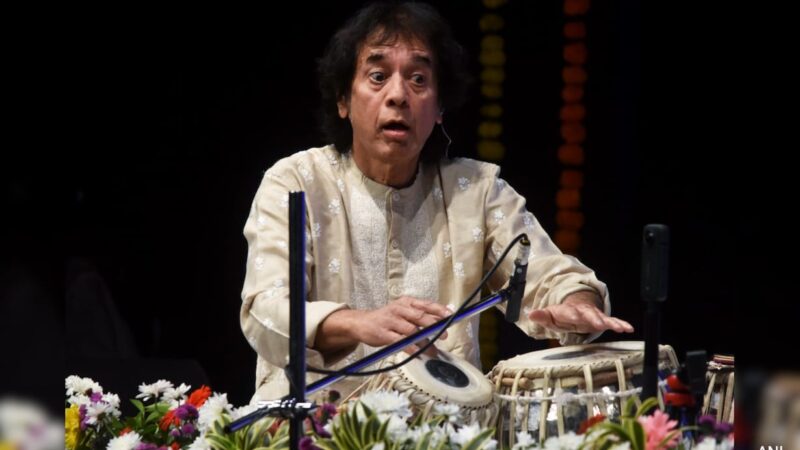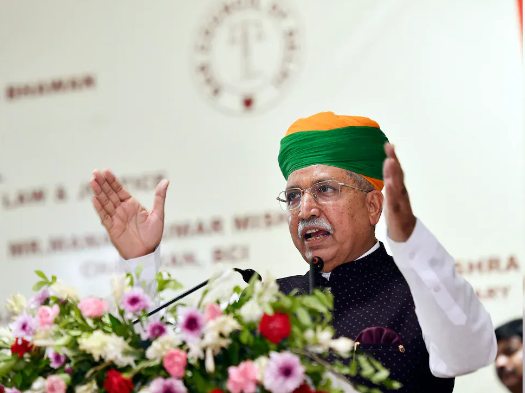Collapse of Shivaji Statue Stirs Political Controversy in Maharashtra

The recent collapse of a massive statue of Shivaji Shahaji Bhosale, the revered 17th-century ruler and Hindu icon, has set off a political firestorm in Maharashtra, India. The statue, situated in Sindhudurg district, fell on August 26 due to severe monsoon rains, sparking a wave of protests and controversy. The timing of the collapse, just weeks before crucial state elections, has further intensified the situation.

Shivaji Maharaj, known for his resistance against Mughal rule and his role as a hero of the Hindu right, holds a significant place in Maharashtra’s cultural and political landscape. The statue was intended to honor his legacy, but its collapse has instead become a major issue for political opponents of the ruling coalition. The incident has been used by opposition parties to criticize the state government, which includes the Bharatiya Janata Party (BJP) and factions of the Shiv Sena and National Congress Party (NCP).
The opposition has seized on the statue’s collapse to demand the resignation of Chief Minister Eknath Shinde, alleging corruption and mismanagement in the statue’s construction. Senior opposition leader Sharad Pawar has argued that the collapse of the newly installed statue, while other statues of Shivaji remain standing, indicates systemic issues and a disregard for Shivaji’s revered status.
Prime Minister Narendra Modi, who inaugurated the statue in December, has publicly apologized for the incident, expressing regret to those who revere Shivaji Maharaj. Modi’s apology reflects the sensitivity of the issue and the political stakes involved, as the statue’s fall has become a symbol of broader concerns about governance and accountability.
The BJP, which is a key partner in Maharashtra’s ruling coalition, has faced criticism over the incident. The statue was built at a cost of 23.6 million rupees ($281,285), and the collapse has prompted accusations of corruption and negligence. The BJP’s state chief, Ashish Shelar, has publicly apologized, promising to rectify the situation and hold those responsible accountable.
Chief Minister Shinde and his allies have denied allegations of corruption, attributing the statue’s collapse to strong winds in the coastal region. Public Works Minister Ravindra Chavan has reported that the public works department had previously notified the Indian Navy about rust issues in the statue’s structural components, suggesting that the collapse might have been due to these underlying problems.
The situation has led to arrests related to the statue’s construction. Authorities have detained the structural consultant involved in the project and are searching for the sculptor. This response highlights the seriousness with which the state is addressing the fallout from the incident, though opinions remain divided.
The controversy surrounding the statue has also stirred political reactions beyond Maharashtra. The opposition alliance Maha Vikas Aghadi (MVA) has organized statewide protests to highlight the issue, while the BJP has responded with counter-protests, accusing the MVA of using the incident for political gain.
The collapse of Shivaji Maharaj’s statue underscores the centrality of his legacy in Maharashtra’s political landscape. As a figure of immense cultural and political significance, any event related to Shivaji is likely to provoke strong reactions and become a focal point in state politics. The ongoing dispute over the statue’s collapse reflects deeper issues of governance, political accountability, and the management of public projects.
With elections approaching, the statue’s collapse has become a key issue in the campaign, potentially influencing voter perceptions and party strategies. The incident has illuminated the intersection of cultural reverence and political maneuvering in Maharashtra, demonstrating how symbolic events can have far-reaching political implications.


